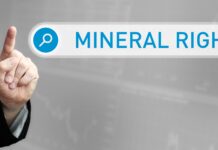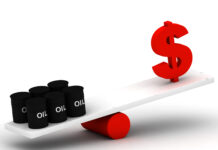
North Dakota oil and gas producers have faced many hurdles from politicians and activists united by the goal to “keep it in the ground,” and recent actions in Washington state pose the latest, and highest, hurdle to date. Governor Jay Inslee, an announced Democrat presidential candidate with a $9 trillion climate action plan, recently signed a bill into law that will require crude oil, and specifically crude oil from North Dakota, to have a vapor pressure of 9 psi or less.
The sponsor of the legislation, State Senator Andy Billig, D-Spokane, and Gov. Inslee defend this action on public safety grounds. Sen. Billig was quoted in a Bismarck Tribune article March 31, 2019, stating that, “People and their safety must come first. Experts know that the highly flammable Bakken oil poses a greater risk…”
Observers note that the limit of 9 psi has a political rather than a scientific origin. In fact, in minutes from the March 27, 2019, meeting of the North Dakota Industrial Commission, the body that oversees mineral development in the state, it was stated that the vapor pressure crude oil limit of 9 psi was first mentioned by the Attorney General of New York in an application to the federal government regarding rulemaking on the transportation of crude oil. However, testimony put into the record with this federal application stated that there is no scientific basis for a psi limit of nine.
Without any scientific backing for political actions aimed at Bakken crude, the 9 psi vapor pressure is merely a stalking horse for the “keep it in the ground” movement. Political efforts to limit the transportation of oil and gas are not limited to Washington state. Memories of the protests and lawsuits over the Dakota Access Pipeline project are still fresh, and recent actions targeting pipeline infrastructure in Minnesota, Michigan and elsewhere are raising costs for consumers and costing jobs.
The political actions in Washington state are similar to the struggle that Enbridge, Inc. is having with its efforts to upgrade and improve Line 5 in Michigan and Line 3 in Minnesota. The planned pipeline improvements would both increase capacity that is important to producers in Canada but also would replace aging infrastructure offering safety and environmental benefits. Politicians in these states are looking past the economic benefit, the jobs, the tax revenue and the significant cost savings to consumers to appease environmental activists.
Bakken Oil “Devalued”
The Director of the North Dakota Department of Mineral Resources, Lynn Helms, stated at the March 27, 2019 meeting of the Industrial Commission that, “Bakken crude oil treated to 9 psi vapor pressure would have no propane, no butane and very little pentane in it and would be of very minimal value to a refinery. The refinery would have to treat it like heavy crude oil. It would devalue the crude oil immensely. This leads to the conclusion that if this becomes law, crude oil would no longer be transported to Washington from North Dakota.”
North Dakota is producing 1.4 million barrels of oil a day (bpd) and expected increases in production will move that number closer to 2 million bpd. There is insufficient refining capacity in the state, and moving crude to traditional markets for processing, refining and export requires significant interstate infrastructure and transportation. Shipping crude by rail (CBR) allows producers to access markets where pipelines are not feasible.
Currently, North Dakota producers ship 200,000 bpd to Washington state refineries in PADD V by rail, that is roughly 70% of the total daily CBR shipments of Bakken crude. Beginning on January 1, 2020, the new law will force refineries in Washington to replace the Bakken crude with oil imported from overseas. Producers will not strip valuable natural gas liquids from Bakken crude, but will instead find other markets.
This will idle CBR facilities constructed in Washington to safely transport Bakken crude oil to refineries on Washington’s coast. Significant capital has been invested in transportation and processing infrastructure, and those facilities will now be shuttered, a substantial loss of capital. The law will cost jobs and lose revenue for Washington state, and importing foreign crude stock could require additional capital investment by refineries.
Legal Challenge
Based on comments from officials, it is likely that North Dakota will challenge the Washington state statute in federal court, primarily on Commerce Clause grounds. The agenda for the May 28, 2019 Industrial Commission meeting had a line item for the discussion of potential litigation to challenge the Washington state statute.
Prior to Gov. Inslee signing the vapor pressure limit legislation, North Dakota’s congressional delegation sent him a letter urging a veto. The letter by Sen. John Hoven (R), Sen. Kevin Cramer (R) and Rep. Kelly Armstrong (R) stated that the legislation would lead to a “de-facto ban” on the rail shipment of Bakken crude to Washington state. This echoes the comments of Director Helms to the Industrial Commission.
The letter laid out possible grounds for legal action by stating that, “The federal government maintains field preemption over the state of Washington for the operating practices and movement of hazardous materials by rail through the Federal Railroad Administration and the Pipeline and Hazardous Materials Safety Administration.”
Public officials and industry representatives in North Dakota have stated that public safety concerns are very important, but stress that laws and regulations to address safety concerns must be based on facts and not simply on ideological grounds.
Bakken crude oil is rich in natural gas liquids, a significant factor in its value to refiners. From North Dakota’s perspective, protecting the value and integrity of this resource is a priority. Regulators and producers will remain vigilant to ensure that transportation infrastructure is both safe and effective in moving the resource to market.
About the author: Bette Grande is a Research Fellow for energy and environment issues at The Heartland Institute. She served as a North Dakota state Representative from 1996–2014. Grande was a member of the House Appropriations Committee, Education and Environment Division. She was born and raised in Williston, North Dakota.














